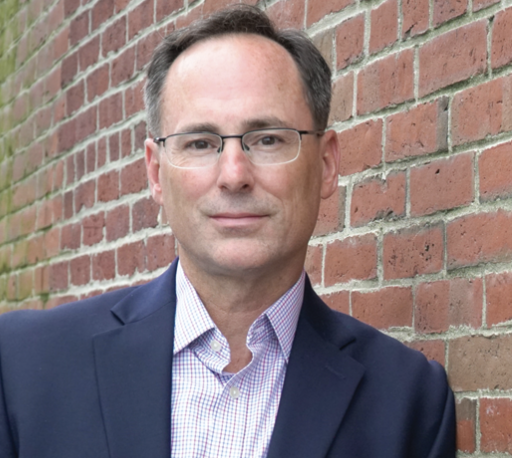This article originally appeared at JBartlett.org.
Among his many memorable contributions to American arts, the great singer-songwriter Kris Kristofferson, who passed away in September, wrote one of the most quotable lines in rock history.
“Freedom’s just another word for nothing left to lose.”
It’s a fabulous drifter anthem.
It’s also entirely wrong.
Part of the American political left at the time was infused with a hippie ethos that disdained possessions and social connections. Freedom to them meant getting “back to the garden,” to quote another anthem of the era.
They should’ve read fewer radical poets and more Enlightenment philosophers.
Ancient humans had “nothing left to lose” in the sense that they had few possessions. Life was a pretty big thing to lose, though, and life in a state of nature was not exactly full of lattes and free health care. If you were lucky enough to survive childhood, you still had to escape war, pestilence, famine, all the Old Testament stuff. You were only free until someone more powerful came along and subjugated you. And then there were no U.S. Marines to come to the rescue.
For most of human history, either chaos or subjugation was the rule for most of humanity. Humans spent millennia poor and unfree.
The development of democratic governments, along with institutions that decentralized power and incentivized innovation and upward mobility, changed everything.
When humans replaced extractive institutions dominated by elites for inclusive institutions that empowered outsiders, as MIT economist Daron Acemoglu concisely frames it, an unprecedented era of human flourishing began.
In 1820, 75% of the world’s population lived in extreme poverty, as the chart below from Our World In Data shows. By 2018, only 11% did.
“For most of human history, life expectancy has been short – perhaps 25 years for our hunter-gatherer ancestors and only 37 years for residents of England in 1700,” a paper by Harvard, Princeton and UCLA researchers in 2011 determined. “Dramatic changes began in the 18th century, with life expectancy in England rising to 41 years by 1820, 50 years by the early 20th century, and 77 years today.”
In the past 13 years, life expectancy in England has risen to 80.
Economic growth more than tripled human life expectancy and has nearly eradicated extreme poverty.
“Economic growth made it possible to leave the widespread extreme poverty of the past behind,” Oxford University professor Max Roser writes. “It made the difference between a society in which the majority were lacking even the most basic goods and services – food, decent housing and clothes, healthcare, public infrastructure and transport – and a society in which these products are widely available.”
What economist Dierdre McCloskey calls “the great enrichment” was driven by a surge in economic growth, but what drives economic growth?
Acemoglu notes that short bursts of economic growth have occurred under authoritarian regimes throughout history. But, like the people, they were short-lived. Why?
“Authoritarian systems often rely on some amount of repression, because they seek to maintain an unequal distribution of political power and economic benefits. They also adopt economic institutions and policies that protect incumbents and create rents for those who hold political power,” he wrote in his epilogue to Introduction to Modern Economic Growth.
He found that “a distinguishing feature of growth under authoritarian institutions is that it protects the interests of the current elite. So, in the final analysis, growth must always rely on existing techniques and production relationships. It will not unleash the process of creative destruction and the entry of new talent and new businesses necessary to carry a nation to the state of sustained growth.”
The entry of new talent and new business (and new ideas) is crucial for raising living standards and for maximizing individual autonomy (freedom).
Institutions and policies that seek to protect insiders by suppressing competition, innovation and freedom of individual action hurt economic growth by curtailing freedom and thus limiting opportunity for outsiders.
Democracy alone does not protect against such collusion by insiders. Even in democratic regimes, special interests pressure ruling authorities for protections against outsiders.
Such protections remain woven into American and New Hampshire laws even today.
From tariffs and confiscatory tax rates at the national level to occupational and business regulations at the state level to housing restrictions and food truck bans at the local level, regulation and taxation continue to slow economic growth and reduce opportunities for average folks.
Building an inclusive, prosperous society requires reducing the barriers that insiders erect to protect their own power and status from being challenged by outsiders.
When insiders collude with government to extract resources from an unfavored group or to protect favored groups from competition or innovation, freedom, opportunity and prosperity are diminished.
The Josiah Bartlett Center for Public Policy advocates for expanding free markets and limiting government coercion because these are proven methods of maximizing freedom, opportunity and prosperity for all Granite Staters.
Government maximizes freedom not by redistributing wealth after its creation but by supporting institutions and policies that lift restraints on individual economic autonomy, thus empowering all citizens, regardless of social, political, or economic status, to pursue happiness on their own terms (providing they don’t harm others).
Such inclusive institutions maximize individual freedom, incentivize innovation and stimulate growth and prosperity.
Free markets and limited, inclusive government generate maximum amounts of widely shared prosperity by unleashing the full measure of human potential.
It’s no accident that the “live free or die” state is rated No. 1 in economic freedom in North America and has the nation’s lowest poverty rate.
It’s no accident that New Hampshire has enjoyed historically higher economic growth than Vermont or Maine, and thus has higher household and per-capita income, despite sharing similar geographic and demographic characteristics.
Free markets and limited, inclusive government make everyone freer and more prosperous.
Freedom is the foundation of sustainable prosperity.
O,r to put it another way, freedom’s just another word for everything to lose.
Lose freedom, and all of our modern prosperity collapses.
Acemoglu documents this collapse in numerous authoritarian regimes of the past. People would win a little freedom, which would cause a spurt of growth, which challenged established elites, who responded by restricting freedom, which ended the growth.
From the Mayans to the Romans to the Soviets, the cycle was repeated.
Lose freedom, lose prosperity.
That’s why the Josiah Bartlett Center fights for policies that expand economic freedom.
If you’d like to help us raise living standards and create greater opportunities for all Granite Staters, you can make a contribution online here. It’s an investment in a freer, more prosperous New Hampshire for everyone.





